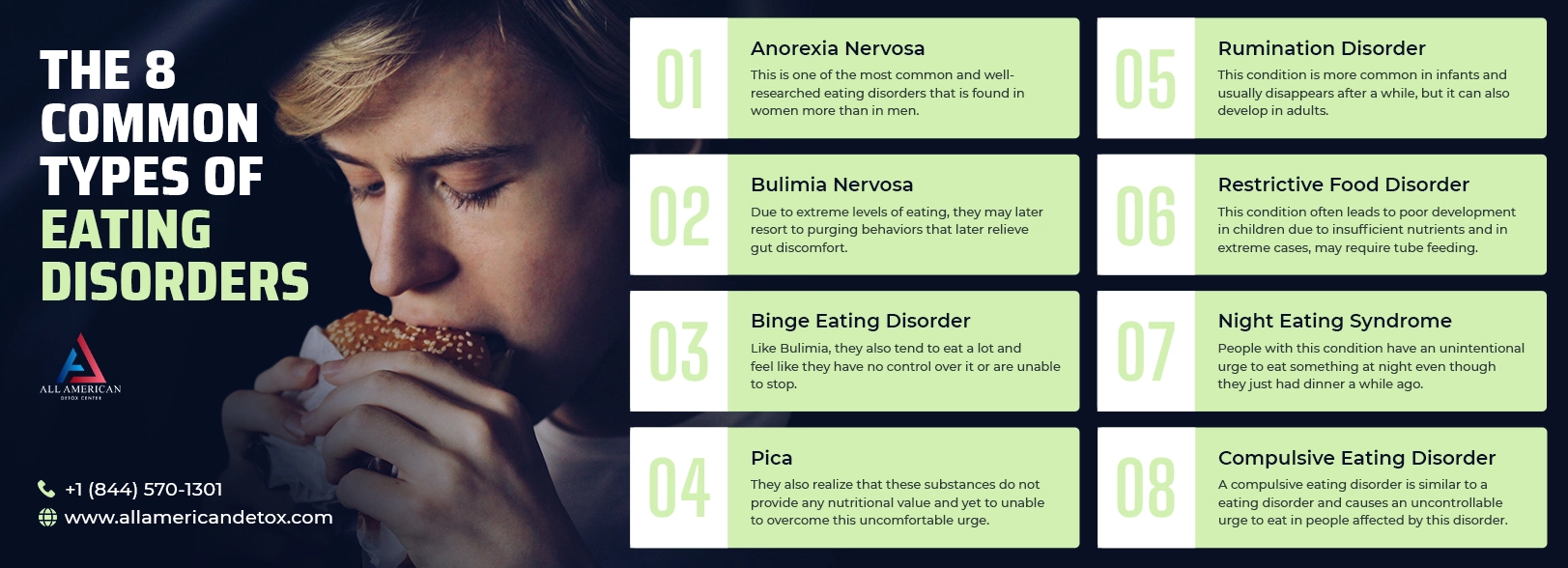Not known Facts About Eating Disorder Recovery
Table of ContentsThe 9-Second Trick For Eating Disorder RecoveryThe Best Strategy To Use For Eating Disorder RecoveryThe Main Principles Of Eating Disorder Recovery Eating Disorder Recovery Things To Know Before You BuyThe Definitive Guide for Eating Disorder Recovery

.
While numerous individuals make a point to be mindful of the components and sourcing of their food, orthorexia can end up being detrimental to the individual's health. Ultimately, particular foods or entire teams are removed from the individual's diet; they may also begin to obsess over the active ingredients in their foods, spending hrs each day preparation dishes.
Food ingredients could also end up being the individual's only topic of discussion. Health repercussions could include a selection of intestinal and also nutritional discrepancies. It can additionally trigger a lot of the exact same health dangers as anorexia, as the person's caloric intake may be seriously limited. Orthorexia is likewise a common co-occurring problem connected with OCD.
Not known Factual Statements About Eating Disorder Recovery
With this condition, a person will strictly prevent particular foods to the detriment of their wellness - eating disorder recovery. Unlike orthorexia, nonetheless, the avoidance of certain foods isn't driven by ideas of the food's healthiness or purity, however instead by a serious aversion to the food's taste, structure, or odor (although problems about perishing or food poisoning might also exist).
With time, a growing number of foods come to be untenable, bring about a very restricted scheme of acceptable foods. Formerly referred to as discerning eating problem, ARFID commonly starts in youth as well as gradually aggravates over time. It's relatively typical for children to be "particular eaters" and every person has preferences wherefore they consume, yet if it becomes uncontrollable and also harmful to an individual's wellness, it requires a check-in with an eating problem treatment professional.
Like orthorexia, an unfavorable or distorted body photo is not always a cause of the disorder. ARFID is generally treated using talk therapy as well as cognitive retraining such as Cognitive Behavior Modification (CBT). Unlike the majority of eating conditions which usually first present during adolescence, rumination problem is most usual in early stage as well as very early youth, although it can continue into their adult years.
Eating Disorder Recovery Fundamentals Explained
Typically, they do not experience stress and anxiety or disgust when spewing, neither do they appear to make an initiative to vomit (as seen in bulimia more nervosa). Rumination problem is usually a reaction to an irrational concern of disease brought on by consuming, although its reasons are less well-understood than various other eating problems.

Orthorexia is a kind of consuming problem, still unacknowledged in the DSM, where an individual ends up being stressed with "healthy and balanced consuming." While lots of people emphasize to be knowledgeable about the ingredients and sourcing of their food, orthorexia can end up being detrimental to the individual's wellness. Orthorexia causes people to determine certain food or food groups as "correct," "healthy," or "pure." Ultimately, particular foods or whole teams are gotten rid of from the individual's diet plan; they may likewise begin to stress over the components in their foods, investing hrs each day preparation dishes.
9 Easy Facts About Eating Disorder Recovery Shown

With this disorder, a person will purely stay clear of specific foods to the detriment of their health. Unlike orthorexia, however, the avoidance of particular foods isn't driven by concepts of the food's healthiness or pureness, yet instead by an extreme hostility to the food's taste, from this source structure, or odor (although issues about putridity or food poisoning may additionally be existing).
With time, increasingly more foods come to be illogical, resulting in a very minimal combination of acceptable foods. Previously known as careful eating problem, ARFID frequently begins in childhood years and gradually intensifies in time. It's relatively usual for youngsters to be "particular eaters" and everybody has choices of what they consume, yet if it becomes compulsive as well as damaging to an individual's health and wellness, it necessitates a check-in with an eating disorder therapy professional.
See This Report on Eating Disorder Recovery
Additionally like orthorexia, a negative or altered body picture is not necessarily a cause of the condition. ARFID is typically treated using talk therapy and also cognitive retraining such as Cognitive Behavior Treatment (CBT). Unlike the majority of eating disorders which generally initially existing during adolescence, rumination problem is most typical in early stage and early youth, although it can persist into their adult years.
Generally, they do not experience tension or disgust when throwing up, nor do they show up to make an effort to vomit (as seen in bulimia nervosa). Rumination problem is typically a reaction to an irrational concern of ailment triggered by eating, although its causes are less well-understood than other eating disorders.
Rumination condition is detailed in the DSM-V. One of the most look at this now unsafe kinds of eating problem, ED-DMT1 (informally called diabulimia), takes place when a person with type-1 diabetes purposefully skips their insulin dosage to slim down. Diabulimia is provided as one of the numerous undefined consuming disorders under the catchall term OSFED (Other Specified Feeding r Eating Condition).